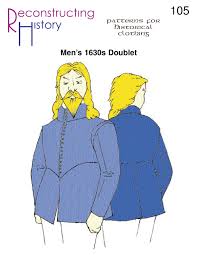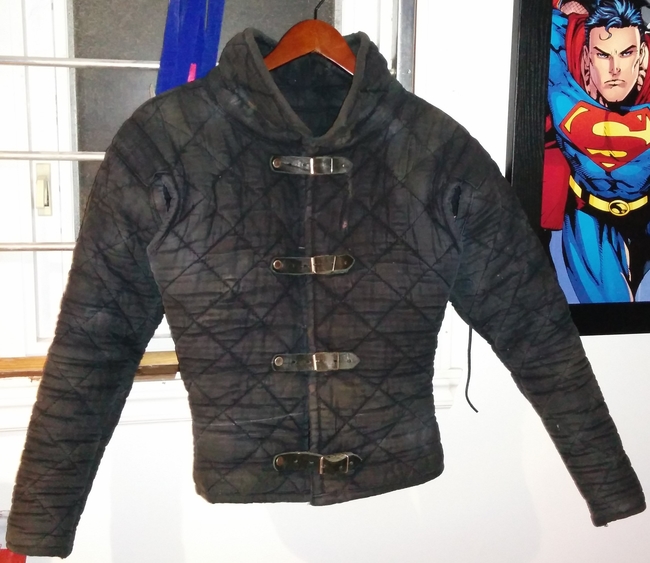Posts: 399 Location: Slovakia
Tue 02 Feb, 2016 11:17 pm
Hello Danny,
Strictly speaking, you´ll be making a leather dublet, not a buff coat. But that´s not so important, as long as it meets your purpose. (it has some relevance for what I´ll be writing later, but that´d be probably too technical).
Based on my own experience (I did couple of leather doublets, and now I´m working on a buff coat from a quite thick oil tanned buff leather), sizing depends on the method of stitching. If you´re going to use a butted stitch (with your leather it should be possible), you do not need any seam allowance for the leather part. It´s more difficult to do, and you need to be really precise when cutting and sewing (depending on the method, but your stitches would probably be visible), but for thick leather garments it´s definitely better.
Otherwise, if you´re going to use some classical stitching, you just need to leave at leas 5mm for stitch allowance on each side.
If you´re going to use your garment over another doublet (as you´d do with a buff coat), you have to make it a little bigger (up to 2 cm in width, and 1 cm in length, based on my experience). If you´d wear it just like a normal doublet, then it needs to be fitted well - especially if used for free sparring.
Last but not least, if you use two layers of leather, the upper layer needs to be some 5 mm larger (more in width than in length).
Hope it helps.
If you happen to have the book on 16th-17th C costuming by Janet Arnold (Patterns of Fashion), it has many useful diagrams on the stitching techniques, as well as wonderful patterns. Otherwise you could browse through the webpages of Mr Karl Robinson - for me, he´s an invaluable inspiration:
http://www.karlrobinson.co.uk/Galley.html


